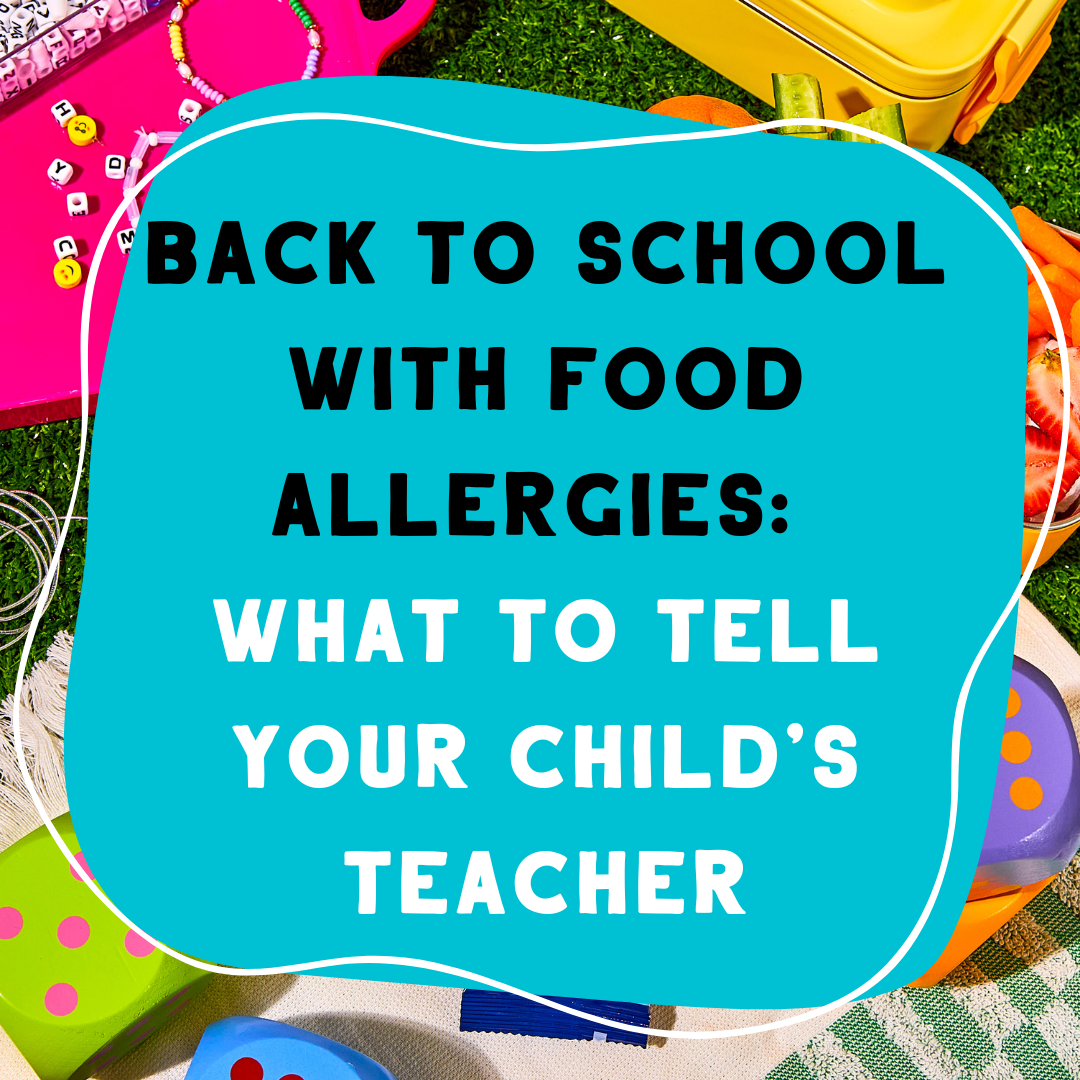

Back to School with Food Allergies: What to Tell Your Child's Teacher
Empower your child’s teacher with clear, actionable info about food allergies—and build a plan that supports your child from day one.
The first day of school is filled with big emotions—for kids and parents alike. New routines, new friendships, and a fresh classroom to explore. For families managing food allergies, it’s also the start of a new partnership: the one between you and your child’s teacher.
With the right communication from the beginning, you can help ensure your child is not just safe, but confident and included every day.
Here’s what to share (and how to share it) to start the school year on the right foot.
1. Start with a Friendly Introduction
Before school begins—or during the first week—reach out with a quick, friendly message introducing yourself and your child. A sample message might sound like:
“Hi! I’m [Your Name], [Your Child]’s parent. I just wanted to quickly connect and share a few helpful notes about [his/her/their] food allergy to support a safe and fun year together.”
Keeping the tone positive and collaborative sets the stage for a great relationship.
2. Provide Key Details About the Allergy
Keep it simple but specific. A short handout or email should include:
- The exact allergy (e.g., peanuts, milk, eggs)
- What reactions may look like for your child
- How they manage it (e.g., “Only eats food from home”)
- What foods or activities to avoid
- Clear instructions for snacks, lunch, and birthdays
Bonus: Include a smiling photo of your child so teachers and subs can easily recognize them.
3. Share an Emergency Action Plan
If your child has an epinephrine prescription or other emergency medication, be sure to:
- Provide an Allergy & Anaphylaxis Emergency Plan (signed by your doctor)
- Show where the medication is stored (or if your child carries it)
- Make sure all staff—teachers, aides, office personnel—know how to use it
Many schools require this as part of their health forms, but a personal follow-up helps reinforce it.
4. Talk About Celebrations and Snacks
Classroom snacks, birthdays, and holiday treats can be tricky territory. Help your teacher plan ahead by:
- Offering a list of safe brands or treat ideas
- Sending in a stash of allergy friendly snacks (like Free2b Sunflower Butter Single Cups)
- Asking to be notified before food is shared in the classroom
The goal isn’t to limit celebrations—but to make sure your child can be part of the fun safely.
5. Empower Your Child Alongside the Teacher
Work with the teacher to help your child build confidence in managing their allergy. That might include:
- Allowing your child to speak up about unsafe food
- Practicing how to say “No thank you, I have a food allergy”
- Knowing who to go to if they feel unsure or unwell
When your child knows the adults around them are informed and supportive, it builds trust and independence.
Tip: Try checking out our guide: Building Confidence in Kids with Food Allergies: Empowering Independence
6. Keep the Communication Going
Check in a few times during the year—especially before field trips, school parties, or any curriculum involving food (like cooking or science experiments).
You can also ask:
“Is there anything you need from me to feel confident supporting [Child’s Name]?”
Open, ongoing communication builds a strong team around your child all year long.
Final Thoughts
Heading back to school with food allergies doesn’t have to feel overwhelming. With a little preparation and thoughtful communication, you can give your child the support they need to learn, grow, and feel included every step of the way.
And when it comes to safe-for-school, classroom-friendly snacks? Free2b has you covered. Our treats are made in a facility free from the top 9 allergens (plus corn, mustard, and sulfites), so you can send your child off with something sweet—and safe.
